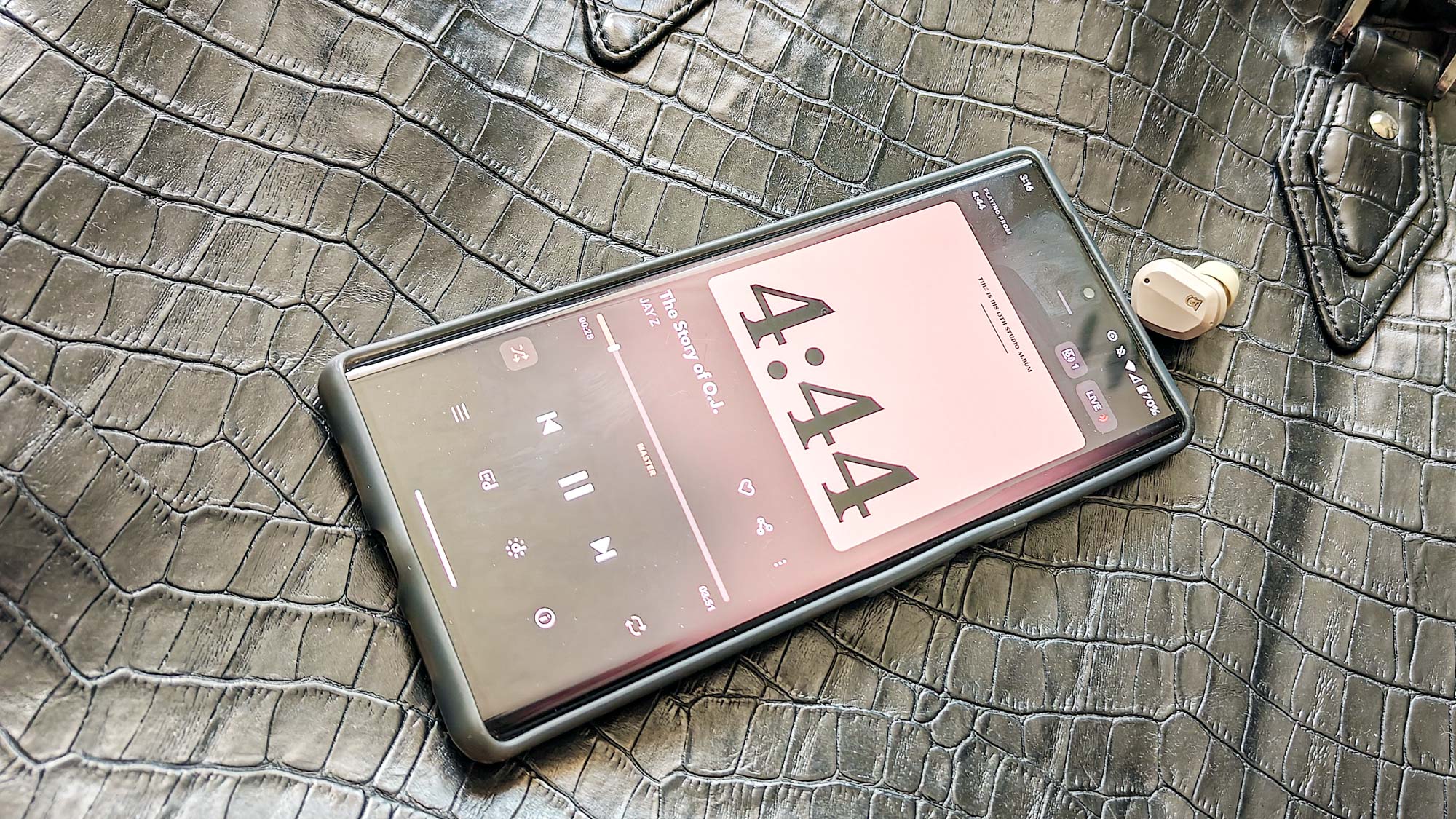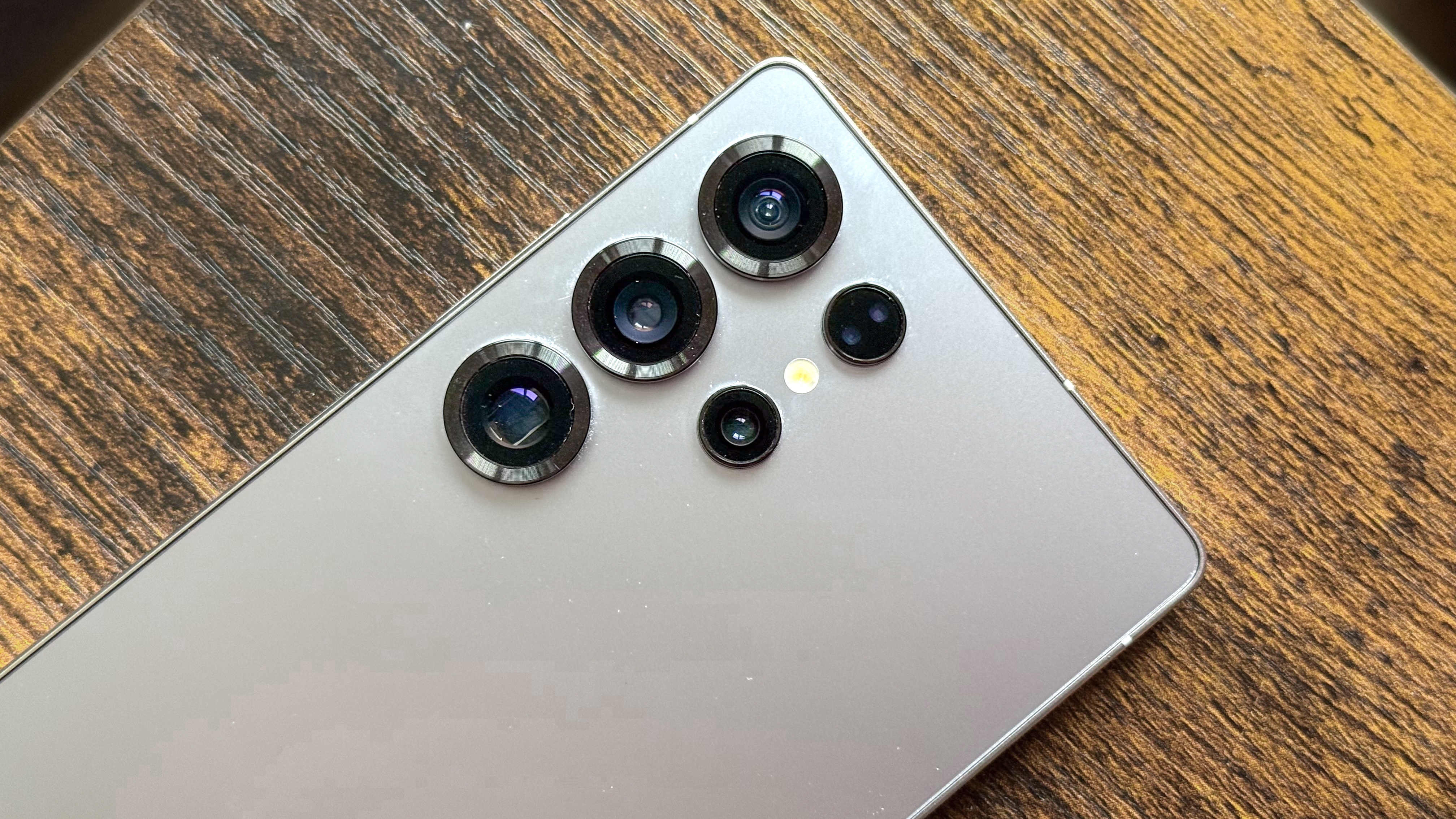Tom's Guide Verdict
The Campfire Audio Orbit prioritize sound over everything else, which is perfect for audiophiles but not for those looking for a full roster of audio features.
Pros
- +
Superb sound and soundstage
- +
Eye-catching design
- +
Dependable battery life
- +
Responsive touch controls
- +
Wireless charging
Cons
- -
Buggy control app and connectivity
- -
No active noise cancellation or transparency mode
Why you can trust Tom's Guide
Price: $249 / £249 / AU$429
Colors: Beige
Battery life (rated): 8.5 hours; 30 hours (charging case)
Connectivity: Bluetooth 5.2 (codec support: SBC, AAC, aptX support)
Water resistance: Yes (IPX5)
Size: Not specified
Weight: Not specified
The $249 Campfire Audio Orbit are the brand’s first true wireless design. Not only do these buds crush category leaders like the AirPods Pro 2 in terms of their sound performance, but they also rank among the best audiophile headphones.
A spec sheet consisting of custom 10mm dynamic drivers, liquid crystal polymer (LCP) diaphragms, and Bluetooth 5.2 with aptX codec support elevates sound across all media platforms. The cool-looking design and generous playtime (per charge) also add to their appeal. However, Campfire’s audio-first approach means the company has focused less on other areas, including connectivity, software, and special features.
Nonetheless, the Orbit will satisfy the most audio-driven music lover. So if sound quality is your goal and you have little care for extra features, read on.

Campfire Audio Orbit: Audiophile sound across the board

With regard to audio, Campfire Audio has knocked it out of the park. The acoustic chamber and drivers give these buds a wide and impactful soundstage that lays out instruments and vocals precisely for a depth-filled listening experience.
The minimal bassline on Jay-Z’s “The Story of O.J.” was more vibrant on the Orbit, while smaller details, like the fiddling piano play scattered throughout the track, were prominent. Taking the low end up a notch, I switched to Johnny Guitar Watson’s “A Real Mother For Ya” and was leveled by the track’s heavy analog synthesizer, which tickled my ears with superb reverberation that decayed smoothly. Even the auto-tuned bridge, hi-hat taps, and sporadic horn blows sounded crisp and transparent over the heavy bass-laced production.
Jazz recordings impressed me most and showcased the Orbit’s magnificent stereo imaging. Listening to Kirk Lightsey’s live rendition of “Heaven Dance” had me feeling like a band member on stage. There’s a section where you can sense the drummer slapping the left and right cymbals on his drum set, resulting in excellent stereo sound. More importantly, the instrumental separation was some of the best I’ve heard on sub-$250 wireless earbuds; the sounds of each instrument moving around made for a more realistic listen.
Most of my listening time was spent on hi-fi music streaming platforms like Tidal. Hi-Fi and Master tracks were in heavy rotation and sounded significantly better than Spotify’s catalog. I don’t want to leave the impression that Spotify tracks sounded bad because they didn’t. Lows and mid-frequencies were well represented, though the clarity and reproduction on Tidal tracks are unbeatable. Campfire Audio doesn't mention the type of aptX support in its specs. We understand it to be aptX Adaptive, though, which gives the Orbit a wireless audio boost by dynamically scaling the bitrate to adjust quality for Android device users. AAC works well with iOS/macOS and Android devices.

The Campfire Audio app lets you customize the Orbit’s sound profile via Equalizer, though the feature isn’t very insightful, at least from a viewer’s perspective. You’re given the default EQ and 7 non-named presets that automatically adjust sound by emphasizing different sonic characteristics. Most changes are noticeable, but the average listener will struggle to accurately identify them since none of the presets have names, descriptions, or show the frequency curve.
You’re left to trust Campfire Audio’s sonic judgement, which is pretty spot on. If you don’t like the default EQ or presets, there’s an option to create a sound profile by playing with the seven-band EQ.
Since active noise cancellation isn’t available, you’re left with passive noise isolation from the silicone tips that tightly form seals around the ear. This won’t block out ambient noise as effectively as ANC, but it’s adequate for hearing music fully in semi-loud environments like a chatty living room or the park.
Campfire Audio Orbit: Lengthy battery life in a gorgeous design

At 8 hours per charge, the Orbit lasts longer than most luxury models. The lightweight, sleek-looking charging case holds up to 30 hours of additional playtime. Wireless charging comes part of the package, but not quick charging. There aren’t many battery-draining features like ANC or voice activation to worry about, meaning you’ll get a good 2-3 days of moderate use before recharging. That’s a generous amount of battery life to pack into a stylish and unique design.
These buds are built from solid plastic and come IP55-rated for sweat and water resistance. I love the tiny gold branding at the top edge of each bud. Even the all-beige appearance looks hot and blends nicely with the minty green color inside the case. The Orbit also provides pleasant comfort for lengthy listening stretches.
Campfire Audio Orbit: Weak connectivity and feature set

The Orbit’s connectivity issues are troublesome. It felt like I was testing a beta version of these buds due to the constant dropout on the left bud and inconsistent pairing with recognized devices. I had to pair the buds manually almost every time I took them out of the case, and even then, the pairing process was infuriating and required several attempts.
It’s nice having a companion app for sound customization. However, that’s the only benefit it offers. Most people can live without ANC, but not having essentials like an ambient listening mode, control customization, and a Find My Buds function really hurts. The app has a tendency to crash at times too.
Other popular features found on equally priced rivals include auto-pause/play, Bluetooth multipoint, one-tap Google Fast Pair, quick charging, and Sidetone (one of 5 underrated wireless earbuds features you should be using). Digital assistance (Google Assistance/Siri) was available and Campfire Audio’s mic array demonstrated great speech recognition to execute voice commands swiftly, while also capturing vocals clearly on calls.
Campfire Audio Orbit: Great sound but some feature compromises

$249 sounds expensive for buds with far fewer features than most of the best wireless earbuds. However, you must take a few things into account. The Orbit sell for a third of what Campfire Audio wired buds run for, yet they deliver audiophile sound.
The bass-forward presentation is energizing on contemporary music tracks and the different presets improve sound, depending on the content. A gorgeous design, touch-accurate controls, and longer battery life (per charge) than any AirPods add to the Orbit’s list of strong selling points.
It’s frustrating that the Campfire Audio Orbit earbuds had flaky connectivity during my tests, and my experience was plagued by inconsistent pairing and range. In addition, the buggy app needs fixing and lacks upmarket features (e.g., ANC/Ambient mode, multipoint technology). Though this can easily be rectified on the next firmware update.
Ultimately, the app and connectivity issues means these Campfire Audio wireless earbuds are only a worthwhile investment if sound quality is a priority above all else. If that’s fine with you, then your money will be well spent. Otherwise, consider other top performers like the Shure Aonic Free or Sony WF-1000XM4 that offer premium sound with more functionality and reliable connectivity.
More from Tom's Guide
A lifestyle journalist with an affinity for consumer products, Alex has over a decade of experience and has worked with popular publications such as Complex, Thrillist, Men’s Health, Gear Patrol, AskMen, and Hoop Magazine. He currently focuses on audio, reviewing the most coveted headphones in the market for both Tom’s Guide and Laptop Magazine.



